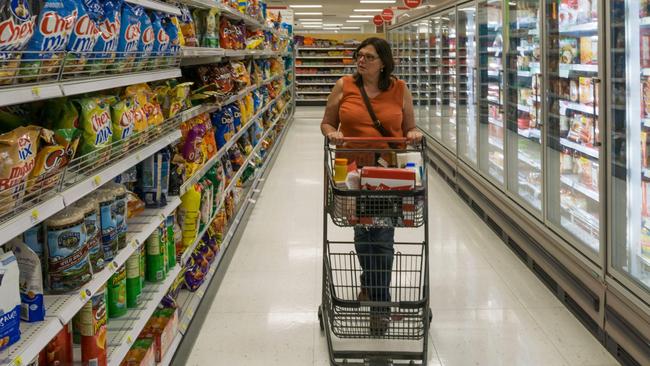Healthy food fail leaves a bad taste
Leading food manufacturers may be subject to mandatory health star ratings as evidence accumulates that the industry is falling far short of federal government targets.

Leading food manufacturers may be subject to mandatory health star ratings as evidence accumulates that the industry is falling far short of federal government targets on a national labelling system to rate the healthiness of packaged food products.
A new report has found the policies that allow for the voluntary regulation of food and unhealthy drinks are failing, with big manufacturers who are subject to the voluntary healthy star ratings gaming the scheme for their own marketing purposes, while failing to follow through on their promises to government on ceasing to promote junk food to children.
The first assessment of voluntary company policies and practices of Australia’s biggest food and beverage manufacturers has found there has been very little progress over time on key targets set by the federal government aimed at reducing the proliferation of unhealthy foods in the market and the heavy marketing of the most dangerous products.
The review by Deakin University’s Global Centre for Preventive Health and Nutrition (GLOBE) highlights only one-third of products in supermarkets displayed health star ratings in 2023, well short of a November 2025 target set by the federal government of 70 per cent.
“I am disappointed that industry has not met uptake targets for health star ratings,” Health Minister Mark Butler said.
“Mandating the system will be considered at the next food ministers meeting.”
The quarterly food ministers meeting is made up of a group of ministers from Australia and New Zealand who oversee the countries’ joint food regulation system. It includes federal and state ministers in Australia across several portfolios.
Mr Butler said he had directed the University of Wollongong to conduct a feasibility study on options for limiting unhealthy food marketing in Australia, which will be reporting in coming months.
The federal government has introduced voluntary policies aimed at reforming the unhealthy food and beverage manufacturing sector that include industry targets on healthy food sales, reducing marketing junk food to children, reducing the salt, saturated fat and trans fat content of foods, better nutrition labelling, and transparency on business relationships including politician donations.
The Deakin report is the first time voluntary policies on unhealthy food and drinks have been evaluated nationally since 2018. It found many big food companies were essentially gaming the voluntary labelling systems.
Professor of public health policy and co-director of the GLOBE centre Gary Sacks said big food manufacturers were using the voluntary health star rating labels to market their healthy food product with high stars while declining to put any stars on their unhealthy offerings.
Health star ratings are a front-of-pack labels system that rates the overall nutritional profile of packaged food. They have been criticised for producing some strange and nonsensical results.
“The whole concept behind the star rating is that if every product had it, you’d be able to get some reliable information just at a glance,” Professor Sacks said. “But at the moment, many food companies are just using it to endorse the healthier products.”
The GLOBE report says voluntary industry actions are “not going nearly far enough”.
“Stronger government action is needed,” the report says.
“In the absence of sufficient progress by industry, key areas for government action include comprehensive and consistent national legislation to restrict the exposure of children to the marketing of unhealthy foods and brands, and mandatory implementation of the Health Star Rating labelling scheme.”
The report also says monitoring is essential given so many companies were making promises and then taking little action.
Most companies had extremely low scores on their efforts to make healthy products accessible and affordable, preferring instead to continue to produce highly processed foods with high ingredients and offer them at a cheap price.




To join the conversation, please log in. Don't have an account? Register
Join the conversation, you are commenting as Logout